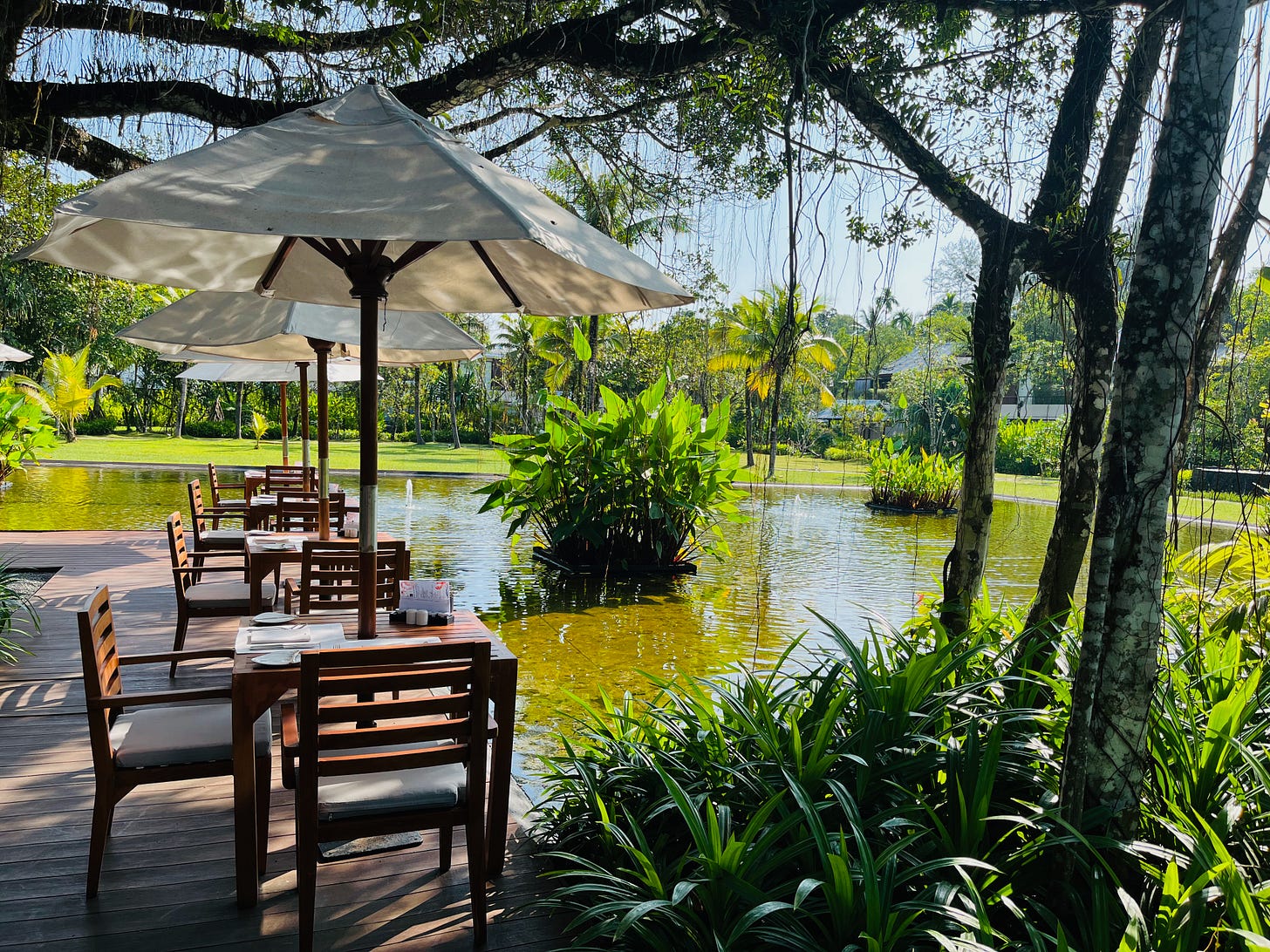Going on a trip? Close your eyes and listen
In an era dominated by visual imagery, where everyone is a photographer, we tend to neglect the other senses. What does a place smell like? How does it sound?
I once interviewed the Labour government minister David Blunkett about his life in travel for The Sunday Times. He talked with enthusiasm and eloquence about beach resorts in his native Yorkshire and cathedrals in Spain - their monumental interiors and resonant acoustics. Blunkett, one of the most impressive politicians of his generation, has been blind since birth, so listening to him describe his travel experiences made me stop and think.
The thought returned to me recently when I was lucky enough to stay at The Sarojin, a dreamy hotel in the heavily-forested region of Khao Lak in southern Thailand. The hotel looks every bit as good as its PR imagery, with contemporary Asian architecture set amongst coconut palms, sea lilies and bird of paradise plants. But what struck me was that it also sounds and smells wonderful.
My favourite time of day on a tropical beach is just after dusk, when the animals come out to play: the cicadas, the frogs, the birds, and who knows what other creatures hidden away in the undergrowth. A cicada can reportedly make as much noise as a motorbike (but without the pollution).
On my first visit to Khao Lak, a couple of decades ago, I took a canoe safari in Khao Sok National Park and my one remaining single clear memory of that day is a sound - the sound of bamboo cracking and creaking as we paddled slowly beneath it. That sound, explained my guide, is the bamboo growing. It grows so fast, you can hear it.
Sometimes, as we fumble for our phones to take a photo, we’re barely conscious of the input we’re getting from our “other” senses. The sweet smell of the frangipani and the pandan leaves. The distant slap of waves on sea. Yet these are the things that add up to make experiences magical. A smell, as we all know, can instantly take us back to a childhood memory.
As a species we’ve always prioritised vision over sound, smell, touch and taste. It’s been the key to our surviving and thriving. But modern technology has pushed us further and further down this single track - first with photography, then cinema, television and the web, and finally to the point where each of us carries around a small computer that has access to almost every image known to mankind.
Want to know what the next beach looks like, or a village in the Amazon rainforest? Just get out your phone.
The big game-changer, of course, was Instagram (then TikTok, then whatever comes next). Once we were encouraged to upload our photos and share them with everyone else, the hegemony of vision over the other senses was complete. Who cares how a place smells, or sounds, or feels? You can’t share that.
The dominance of the image has also affected the way we meet romantic partners. Online dating profiles are all about the images (some users barely bother to read the words, I’m told). But you can’t smell a person, or hear the tenor of their voice, and in real life this can turn out to be a clincher, or a deal breaker.
Has taste suffered too in the age of social media? In the rush to post photos of our meals, there’s a temptation to favour food that is pretty on the plate. It may even change what we choose to eat - a dish looks better in a photograph when it’s deconstructed into its various parts, so in the future we may think less of stews or messy noodle dishes because they aren’t as photogenic as sushi rolls or acai bowls.
Smells and sounds aren’t always good news. Noisy construction work next to your hotel, or a backed-up drain can quickly impair your enjoyment of a trip. I have an app on my phone that tells me the air quality reading of cities around the world. As a result, I may never go back to New Delhi or Beijing.
I may be what Elaine Aron, the psychologist, calls a Highly Sensitive Person. She found that a significant proportion of any population has a hard-wired personality trait that makes them more bothered by loud noises, bright lights, strong smells and even itchy clothing.
True or not, I do know that I’ve changed as I’ve aged, in ways that are measurable. I’ve become more sensitive to caffeine, for example, and my body’s ability to process large quantities of alcohol has almost entirely vanished. Midlife hangovers are brutal.
I’m pretty certain that ambient noise bothers me more than it used to. The buzz of traffic, aircraft overhead, a loud conversation at the next table all seem to worm their way into my brain in a way that wouldn’t have bothered a younger me.
But it’s not all bad news. I also believe I’ve become more sensitive to the everyday beauty that surrounds us. I will stop to gaze at tree trunks, smell flowers, inhale the sea air. I’m happy to walk more slowly, and I notice more. This may be the one mitigating advantage of getting older.
I’m not suggesting we all leave our phones at home and live in the moment (whatever that’s supposed to mean). But those of us who are lucky enough to enjoy the sense of sight could sometimes try to engage a little more with our other senses. You could, for example, just walk down a street and try to identify as many sounds or smells as you can. Occasionally you might even close your eyes.


